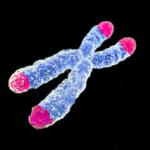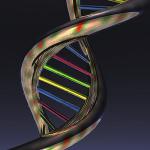At just three months old and with no warning, my older brother—my parents' first child—died in his sleep at the babysitter's house, a tragic case of a very rare condition called sudden infant d
genetics
You're familiar with the phrase "diet wars." Some people swear low-carb is the way to go. Others say such hi-fat programs will kill you; what you really need is a vegetarian diet.
Several months ago, there was speculation that SARS-CoV-2, the coronavirus that causes COVID-19, was created in a Chinese bioweapons laboratory.
Let’s begin with a few facts, extrapolating as necessary. According to the CDC’s statistics on deaths in the United States, seasonal flu is an equal opportunity killer.
When your dog looks longingly at you as you eat breakfast, out of compassion and sympathy, do you ever find yourself pouring some orange juice into his bowl? Of course not. You might get bitten. Or, at the very least, you'll get a puzzled look.
“In America, the majority of fast-food restaurants aren’t owned by the corporation itself, but by franchisees — individuals who pay for the right to use a brand name.
One of our readers [1] wrote to us about a recent article in Lancet regarding the role of alcohol in cardiovascular disease. That prompted us to take a look and here is what we found.
A new study in Translational Psychiatry sought to elucidate whether reduced telomere length (TL) is associated with childhood trauma in those with schizophrenia (SZ) and bipo
Senator Elizabeth Warren, who has taken flak for her claims to Native American ancestry, just released the results of a genetic test that definitively proves... well, nothing. She might be 1/32nd Native American. Or 1/1,024th.












